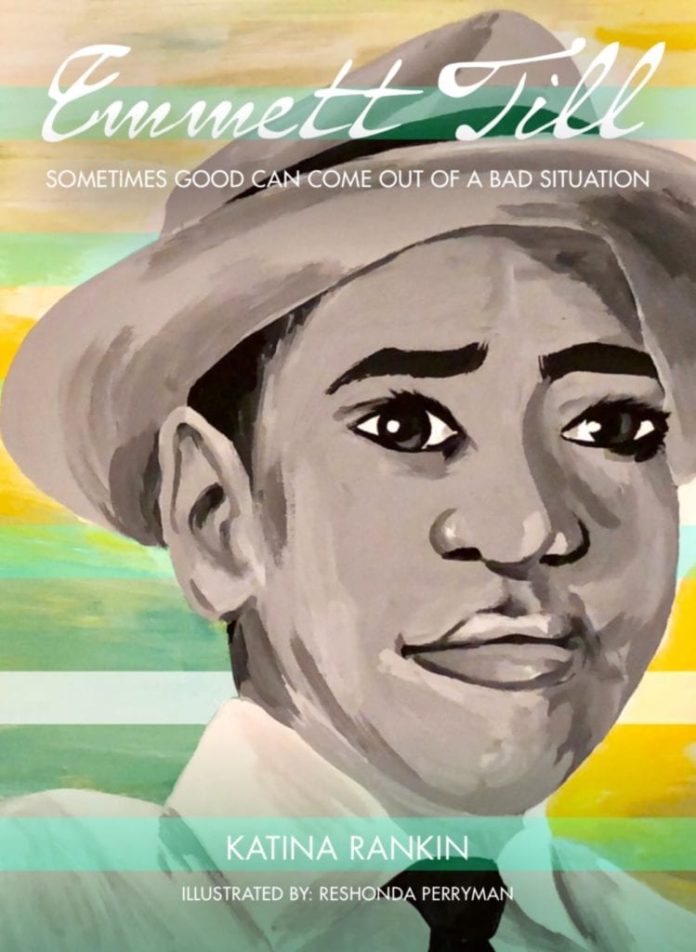
Local 24 anchor Katina Rankin released her second book – “Emmett Till: Sometimes Good Can Come Out of a Bad Situation” – a few weeks before what would have been his 77th birthday (July 25) and 63 years after his tragic death at the age of 14.
Young Till’s death became a catalyst for the civil rights movement. His mother, Mamie, famously insisted that his casket be left open so the world would see the hideous work of the men who killed him (Aug. 28, 1955) for whistling at a white woman (Carolyn Bryant) while visiting relatives in Money, Miss.
An all-white jury acquitted Bryant’s husband, Roy, and his half-brother, J.W. Milam. Bryant now has finally admitted that she perjured herself and the U.S. Department of Justice has reopened the case.
The title literally explains why Rankin wrote the book.
“I wanted children to know that triumph can come out of tragedy,” she said, going on to explain that it was important to introduce a new generation to the Till story.
“Books on Till’s life exist for high school and college students but not for younger children.”
“Emmett Till: Sometimes Good Can Come Out of a Bad Situation” targets younger readers and is a guideline of sorts for parents to open a discussion with their children.
I decided to read Rankin’s account with my almost-10-year-old, Addison. She had several questions and comments: “Why did this woman lie?” “Why did they do this to him?” “How did his face get like this?” “His cousins (who had been with him during the initial encounter) must feel so bad!”
I showed her the photos of Till as he lived and as he was found, which made her upset. She shut down a little on me but before that happened, I spoke to her about then and now. Much like the conversation between the characters in the book:
“Some people are just hateful. They don’t like black folks just cause.”
“His face was that way because they beat him and drowned him. If someone drowns they swell and puff up. But it was also distorted because he was so badly beaten.”
“I’m sure his cousins will never forgive themselves.”
I then had to reassure Addison of her safety. She is such an empath. She felt so deeply for this young man. We both sat for a while and hugged after we finished the book.
I have not had many conversations with Addison about racism or our country’s history with black folks. I don’t want to frighten her. We have spoken about the basics and this was a good springboard for other very necessary conversations.
I hope that she will never be faced with such things or have to learn this firsthand. I know this is naïve of me but I still hope and pray every day that no harm comes to her mentally, physically, emotionally, psychically. But should the situation arise – subtle or overt, slight or aggressive – I also pray that I have done all I can do to prepare her, if I am not able to protect her.
This is a tough subject to tackle and I thank Katina Rankin for opening the door to the conversation. She is right, there was a silver lining. Sometimes people have to get mad and downright disgusted to take action and make change.
Emmett Till was – and is posthumously – at the root of turning the tide in America for the better. We are in regressive times now but we are still light years ahead of where we were.
Rest well Emmett Till. See ya on the other side.
(“Emmett Till: Sometimes Good Can Come Out of a Bad Situation” is illustrated by Reshonda Perryman and available online via amazon.com.)




